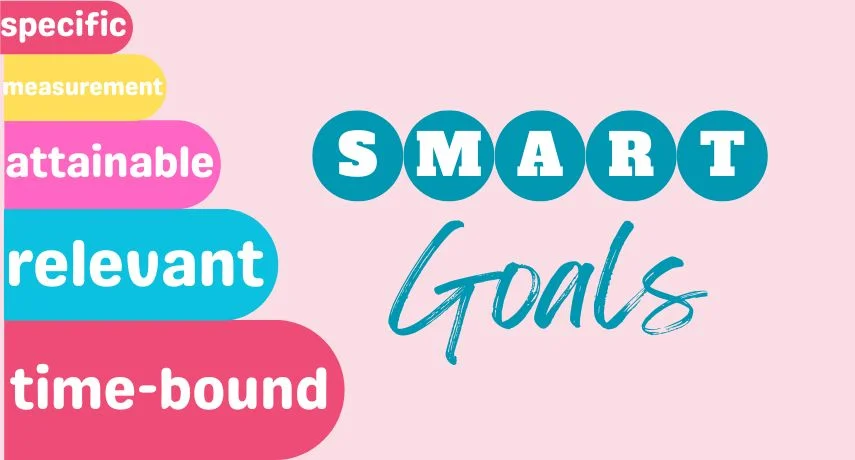
Organizing fundraising events can be exciting yet challenging. Whether you’re a community leader, event planner, or nonprofit professional, a well-executed event can generate significant support for your cause. With effective planning, your event can create a memorable experience for attendees and maximize donations. At America Sports Hub, we excel in managing impactful events and are eager to share our expertise with you. This guide will walk you through planning a successful fundraising event to achieve your goals and engage your community.
What is Fundraising?
Fundraising involves collecting voluntary contributions from individuals, businesses, and organizations to support a cause. Activities include events, campaigns, and appeals aimed at generating financial support. Fundraising events like charity auctions, galas, and walkathons effectively engage supporters and raise funds. These events connect with audiences meaningfully while emphasizing the cause’s importance.
Importance of Fundraising Events
Fundraising events are crucial for supporting nonprofit organizations, community initiatives, and various causes. They raise funds, boost awareness, foster engagement, and build lasting relationships with donors. The key to success lies in effective planning, starting with understanding event management fundamentals. In this guide, we’ll cover everything from setting goals to executing the event and following up with attendees. Let’s create an unforgettable fundraiser event that strengthens your organization’s mission.
Step 1: Define Your Fundraising Events Goals
Empowering your team with ambitious yet achievable fundraising goals is the foundation for a thriving event. Goals provide direction, motivation, and benchmarks for measuring success. To ensure effectiveness, use the SMART criteria:

- Specific: Clearly define what you want to achieve. Be precise about the expected outcomes from your fundraising efforts.
- Measurable: Establish criteria to track progress and evaluate success. Use metrics like funds raised, number of attendees, or new donor sign-ups.
- Achievable: Set realistic goals within your reach. Consider available resources and past performance when setting targets.
- Relevant: Align your goals with your organization’s mission and objectives. Goals should support the broader mission of your organization.
- Time-bound: Set a deadline for achieving your goals. This creates urgency and keeps your team focused.
For example, a common goal might be to raise $10,000 for a community project within three months. This goal is specific, measurable, achievable, relevant, and time-bound, giving your team a clear target.
Step 2: Identify Your Target Audience
Discovering the passions and interests of your target audience is key to crafting an event that resonates with them and fosters meaningful connections. Analyze the demographics and interests of potential attendees. Consider factors like age, gender, location, and occupation. Think about their motivations for supporting your cause, such as a personal connection or a desire to contribute to community welfare.
With a clear picture of your audience, you can design an event that resonates with them. For young professionals, choose a trendy venue and include networking opportunities. For families, host family-friendly activities or elements that engage children while addressing community interests. Understanding these nuances helps craft an engaging event that encourages participation and generosity.
Step 3: Selecting the Most Impactful Event Format
Selecting the ideal fundraiser event is crucial for reaching your goals and engaging your audience. The format you choose can greatly impact your fundraising success and community involvement. Consider these popular event types, each with its own appeal and logistics:
- Charity Auctions: Live or silent auctions involve bids on items or experiences from sponsors or community members. They create excitement and competitive bidding, leading to significant contributions.
- Fun Runs/Walks: These events encourage participants to secure sponsorships from friends, family, and local businesses. They are inclusive for all ages and fitness levels and can be themed for added engagement.
- Gala Dinners: Formal dinners offer a night of dining, entertainment, and raising fund activities like raffles or auctions. Galas can attract prominent guests and sponsorships due to their elegant atmosphere.
- Concerts: Live music events can draw large audiences and generate revenue through ticket sales. Partner with local bands to boost community support and media coverage.
- Workshops/Seminars: Educational events with expert talks or interactive sessions engage specific audiences and attract related sponsorships.
Choose an event format that aligns with your fundraising goals and resonates with your audience. Research successful events by similar organizations for inspiration.
Step 4: Creating a Realistic Budget
A detailed budget is essential for managing expenses and maximizing revenue. It helps you make informed decisions and track all financial aspects. Start by listing potential costs like:
- Venue Rental: Costs for renting a space, including setup and breakdown fees.
- Catering: Expenses for food and beverages, from full meals to refreshments.
- Marketing: Costs for event promotion, including advertising and social media.
- Entertainment: Fees for performers, speakers, or audiovisual equipment rental.
- Staff: Wages for temporary staff like security and technical support.
Estimate revenue sources such as ticket sales, sponsorships, and donations. Include a contingency fund of 10-15% of your budget for unexpected expenses. A well-planned budget ensures financial stability and smooth event execution.
Step 5: Building Your Event Planning Team
A strong planning team is key to a successful fundraiser event. Assemble a diverse team with varied skills and perspectives. Assign roles that align with each member’s strengths to keep everyone engaged and motivated.
Key roles include:
- Event Manager: Oversees the entire event, ensuring smooth operations from start to finish.
- Marketing Coordinator: Manages publicity and social media to maximize visibility and attract attendees.
- Sponsorship Coordinator: Secures sponsorships and partnerships for financial or in-kind support.
- Volunteer Coordinator: Recruits, trains, and manages volunteers to ensure they are prepared for the event.
- Logistics Coordinator: Handles logistics like venue setup, equipment, and supplies.
Motivate your team by recognizing contributions, maintaining open communication, and fostering a collaborative environment. Regular meetings and updates keep everyone focused on the common goal.
Step 6: Select the Best Date and Venue for Your Event
Choosing the right date and venue is crucial for your event’s success. Consider your target audience’s availability, avoid conflicts with other local events, and think about seasonal weather that might affect attendance. Pick a date that maximizes participation and steers clear of major holidays or competing events.
When selecting a venue, match it to your event’s tone and theme. Ensure it can comfortably accommodate your guests and is easily accessible, with ample parking and public transport options. Check if the venue provides essential amenities like audio-visual equipment, seating arrangements, and catering facilities. Book your venue early and negotiate contracts to secure favorable rates, ensuring a reliable location for your event.
Step 7: Promote Your Fund raising Event for Maximum Exposure
Effective event promotion is key to attracting attendees and building excitement. Use a multi-channel marketing strategy that resonates with your target audience. Consider these methods:

- Social Media Marketing: Use platforms like Facebook, Instagram, Twitter, and LinkedIn to spread the word. Create engaging content, share teasers, and use event-specific hashtags to increase your reach. Engage with followers by responding to comments and encouraging shares.
- Email Marketing Campaigns: Send regular updates and reminders to your email list, emphasizing key details like the event date, location, and schedule. Highlight the benefits of attending and personalize messages to enhance engagement.
- Local Media Outreach: Gain exposure through local newspapers, radio stations, and community bulletin boards. Prepare press releases and offer interviews to boost visibility and attract a local audience.
Create clear and compelling messages that highlight the impact of your cause, the uniqueness of your event, and the benefits of attending. Use captivating visuals like high-quality images and engaging videos to capture attention and convey the event’s atmosphere.
Step 8: Engage Sponsors and Partners for Event Success
Securing sponsorships and partnerships can significantly boost your event’s success by providing valuable resources. Approach potential sponsors with a clear value proposition that outlines mutual benefits.
Offer various sponsorship levels with perks like logo placement, marketing recognition, and VIP tickets. Tailor packages to meet diverse sponsor needs, making them attractive. Build strong relationships with sponsors through open communication and consistently delivering on promises. Successful partnerships can lead to long-term support, creating a sustainable raising fund model.
Step 9: Execute Your Event Flawlessly
On the event day, ensure smooth execution by following a comprehensive checklist. Key tasks include:
- Event Setup: Arrive early at the venue to set up equipment, decorations, and technology. Conduct thorough checks to ensure everything works, avoiding last-minute issues.
- Staff Briefing: Hold a detailed briefing with your team and volunteers. Clarify roles, schedules, and contingency plans to ensure everyone is prepared and aligned.
- Attendee Engagement: Create a welcoming atmosphere by engaging with attendees. Highlight the event’s cause and the importance of their contributions to encourage donations. Offer networking opportunities and organize enjoyable activities to keep energy levels high.
Stay calm in the face of unexpected challenges and manage them efficiently. Maintain open communication with your team using radios or messaging apps to quickly address any concerns. Remember, a successful event isn’t just about reaching fundraising goals; it’s about creating a memorable experience for all participants.
Step 10: Follow Up and Show Appreciation
After your fundraising event, it’s crucial to express your deepest gratitude to attendees, donors, and sponsors. Send personalized thank-you notes or emails to express your gratitude and celebrate the event’s success. Highlight how the raised funds will benefit your cause to emphasize the value of their contributions.
Build lasting relationships with attendees by keeping them informed about your organization’s activities and upcoming events. This continued engagement can boost support and increase participation in future fund raising initiatives, helping you cultivate a loyal community around your cause.
Join Us in Making a Difference
Are you ready to host a transformative fundraising event? Contact us at info@americasportshub.org or visit the Gozo Sports Center in Brooklyn, OH. For more information, browse our website at America Sports Hub. Let’s create an extraordinary event together! Act now to support our mission—your involvement in attending events, volunteering, or donating makes a significant impact. Visit our website to learn how you can contribute to our cause today. Follow us on social media for the latest updates and opportunities to get involved. Together, we can achieve amazing results and drive positive change in our community. Don’t wait—join us in making a difference today!
Conclusion
Planning successful fundraising events requires detailed planning, teamwork, and attention to detail. By following these ten steps, you can host an event that not only meets your goals but also engages and inspires your community. At America Sports Hub, we are dedicated to helping you achieve your fund raising objectives. Contact us today for expert event management services, and together, let’s make your next event a remarkable success.
For more tips on fundraising and event planning, subscribe to our newsletter and stay connected with America Sports Hub. Share your experiences or ask questions in the comments below. We are eager to hear from you!
FAQs
Q. How can I ensure my fundraising events are memorable and engaging?
To make your events memorable, consider incorporating unique elements like themed decorations, interactive activities, or special guest speakers. Engage attendees with storytelling, interactive games, or opportunities for personal connection.
Q. What are some tips for maximizing donations at my fundraising events?
Consider offering tiered donation options, creating a sense of urgency or exclusivity with limited-time offers, or providing incentives for higher donations. Also, make the donation process easy and accessible, both online and in-person.
Q. How can I handle unexpected challenges that may arise during my fundraising events?
Have a contingency plan in place for potential issues like bad weather, technical difficulties, or low attendance. Stay calm and adaptable, and delegate tasks to your team to address challenges efficiently.
Q. What are some best practices for following up with attendees and donors after the event?
Send personalized thank-you notes or emails to express your gratitude. Share updates on how the funds raised will be used to reinforce the impact of their contributions. Consider offering exclusive benefits or opportunities to maintain engagement and encourage future support.
Q. How can I measure the success of my fundraising events?
Track key metrics like total funds raised, number of attendees, new donors acquired, and feedback from participants. Compare these results to your initial goals to assess the event’s effectiveness. Analyze the data to identify areas for improvement and inform future planning.

